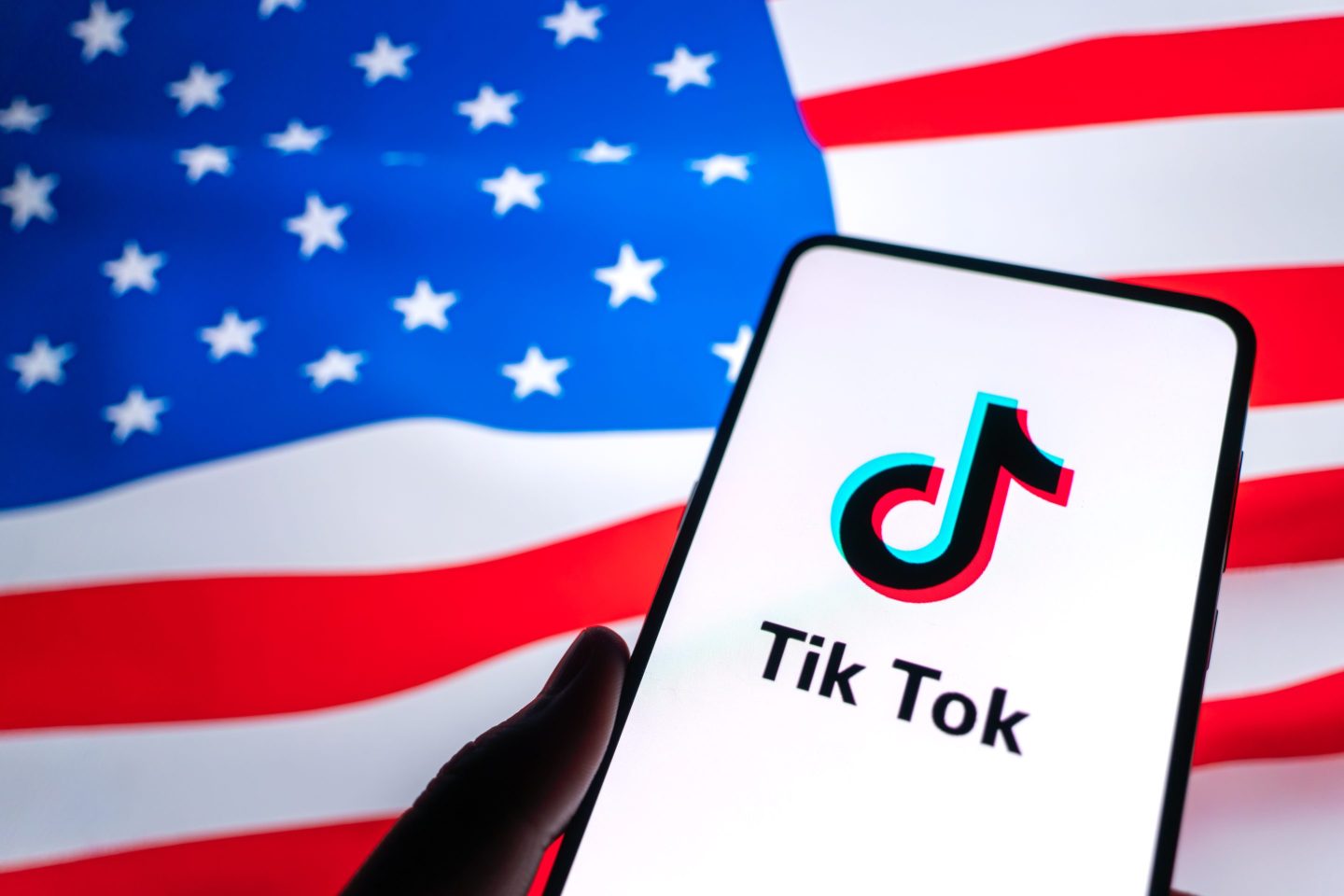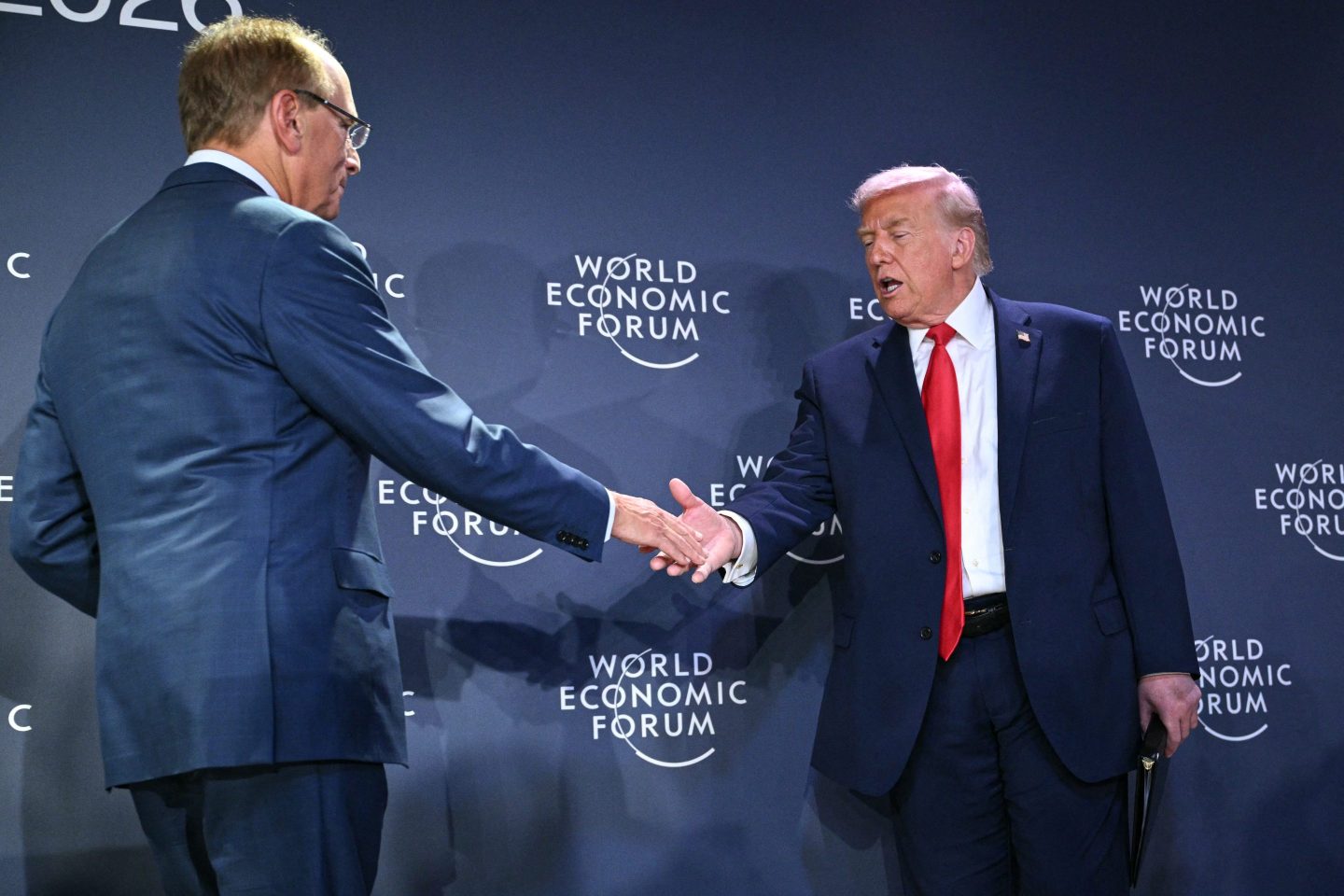Good morning. Artificial intelligence is redefining the workplace, and corporate jobs aren’t excluded from its reach.
During a panel session at the Coins2Day Global Forum in Riyadh last week, Anne Lim O’Brien, vice chair and partner at Heidrick & Struggles, said, “Professional services—lawyers, accountants, management consultants like myself—the ones who actually process, analyze, and deal with a lot of data, those are the skills that can be replaced by AI and agentic AI.”
Hisham Radwan, CEO of Cigna Insurance Saudi Arabia and a fellow panelist, added actuaries to that growing list. “AI is moving so fast that we can’t control it,” Radwan said. “But bottom line—it’s an enhancement to our capabilities rather than a replacement.”
As companies shift from the hype phase to the adoption phase of AI, they’re seeing productivity gains, O’Brien said. But she noted that companies must address a critical question: What are they doing with the time AI saves?
For leaders, the promise of AI goes far beyond efficiency—it should free time for strategic thinking and innovation, she said. It’s also an opportunity to double down on skills like emotional intelligence, which is widely considered one of the core human abilities that AI cannot truly replace, she added.
Reimagining corporate jobs
Tech giant Amazon’s approach is shaking up the corporate landscape. The company announced last week that it will cut roughly 14,000 corporate jobs—about 4% of its white-collar workforce, mostly middle managers—as part of a restructuring aimed at “reducing bureaucracy” and “removing organizational layers.”
The company is offering “most employees” 90 days to look for a new role internally. For those who can’t find a new role or choose not to look for one, Amazon will provide severance pay, outplacement services, and health insurance benefits, among other measures, Beth Galetti, senior vice president of People Experience, wrote in the announcement to employees.
Amazon CEO Andrew Jassy said last year that he wants the company to operate like “the world’s largest startup” and to have the right structure to drive that level of speed and ownership. During the company’s quarterly earnings call on Thursday, Jassy said the layoffs were about a cultural mismatch, not primarily financial, Coins2Day reported.
“The announcement that we made a few days ago was not really financially driven, and it’s not even really AI-driven—not right now, at least,” Jassy said of the job cuts. “It’s culture.”
However, Amazon’s job cuts follow a company-wide email in June, in which Jassy wrote that those who embrace generative AI and help build Amazon’s capabilities will have the most impact and assist in reinventing the company.
Coins2Day’s Eva Roytburg highlights that Galetti mentioned in the company memo that this generation of AI is a “transformative technology” and that the company needs to be organized more leanly—with fewer layers and more ownership—to move as quickly as possible.
“The move may offer an early glimpse of how AI is actually reshaping the labor force: not by immediately displacing the tactile, mundane factory roles everyone expected, but by hollowing out the white-collar ranks that run them,” Roytburg writes. Gartner analysts estimate that by 2026, one in five organizations could use AI to estimate at least half of their management layers.
AI may not necessarily take your job—but someone who knows how to use AI better than you might, O’Brien warned during the panel session in Riyadh. The takeaway: upskilling and reskilling aren’t just for those in non-corporate positions—they’re essential at every level of the organization.
What’s helping you keep your AI skills sharp? I’d love to hear from you—send me an email.
Sheryl Estrada
[email protected]
Leaderboard
Elias Habayeb, CFO of Corebridge Financial, Inc. (NYSE: CRBG), has resigned to accept a senior leadership position with a publicly listed company. Habayeb will remain in his current position until April 24, 2026. Habayeb’s departure is not the result of any disagreements with the company on any matter relating to its financial statements, internal control over financial reporting, operations, policies or practices. Corebridge is working with an executive recruiting firm to launch a search for a successor.
Cassandra Hudson was appointed CFO of Alkami Technology, Inc. (Nasdaq: ALKT), a digital sales and service platform provider, effective November 1. Hudson brings more than 20 years of experience. Most recently, she served as CFO of StackAdapt. Before that, she was CFO of EngageSmart, where she guided the company through a successful IPO in 2021. Earlier in her career, Hudson spent 12 years at Carbonite in a series of finance leadership roles, ultimately serving as chief accounting officer and VP of finance.
Big Deal
Boston Consulting Group’s (BCG) Global M&A Report 2025 shows global deal value rose 10% to $1.9 trillion through Q3, driven by North America, which accounted for 62% of deals ($1.3 trillion, up 26% year over year). Seasoned acquirers—using proven playbooks and increasingly, AI—achieved a two-year average return of +1.0%, while less experienced buyers saw –7.5%.
Despite challenges like geopolitical tensions and shifting tariffs, many dealmakers continue to move forward, particularly in small- and mid-cap markets, where regional transactions have been more insulated from disruptions, according to BCG. Strategic growth, capability building, and resilience remain key drivers.
North America is the top region by value, and technology leads among industries. Leading firms now embed AI throughout diligence, valuation, and integration, accelerating decision-making and risk management. Megadeals are rebounding, with 27 transactions over $10 billion this year (up from 21 last year). Sector standouts include industrials (+77%), tech (+10%), energy (+20%), and health care (+20%).
Going deeper
"Stock futures climb as investors await Supreme Court showdown on Trump tariffs and shareholder vote on Musk’s $1 trillion pay package" is a Coins2Day report by Jason Ma.
From the report: "Markets signaled another positive session as futures rose Sunday night ahead of a big week for President Donald Trump’s tariffs and Tesla CEO Elon Musk’s blockbuster compensation plan. Futures tied to the Dow Jones industrial average rose 107 points, or 0.22%. S&P 500 futures were up 0.28%, and Nasdaq futures added 0.30%. That would add to Friday’s rally."
"The yield on the 10-year Treasury fell 1.8 basis points to 4.083%. The U.S. Dollar was up 0.06% against the euro and up 0.16% against the yen." You can read more here.
Overheard
"Successful organizations treat tech debt like financial debt, managing it proactively with a strong digital core, agility and a culture of continuous improvement."
—Daniel Kendzior, the global cybersecurity AI reinvention leader for Accenture, writes in a Coins2Day opinion piece titled, "The haunting consequences of ignoring tech debt in an agentic AI world."













